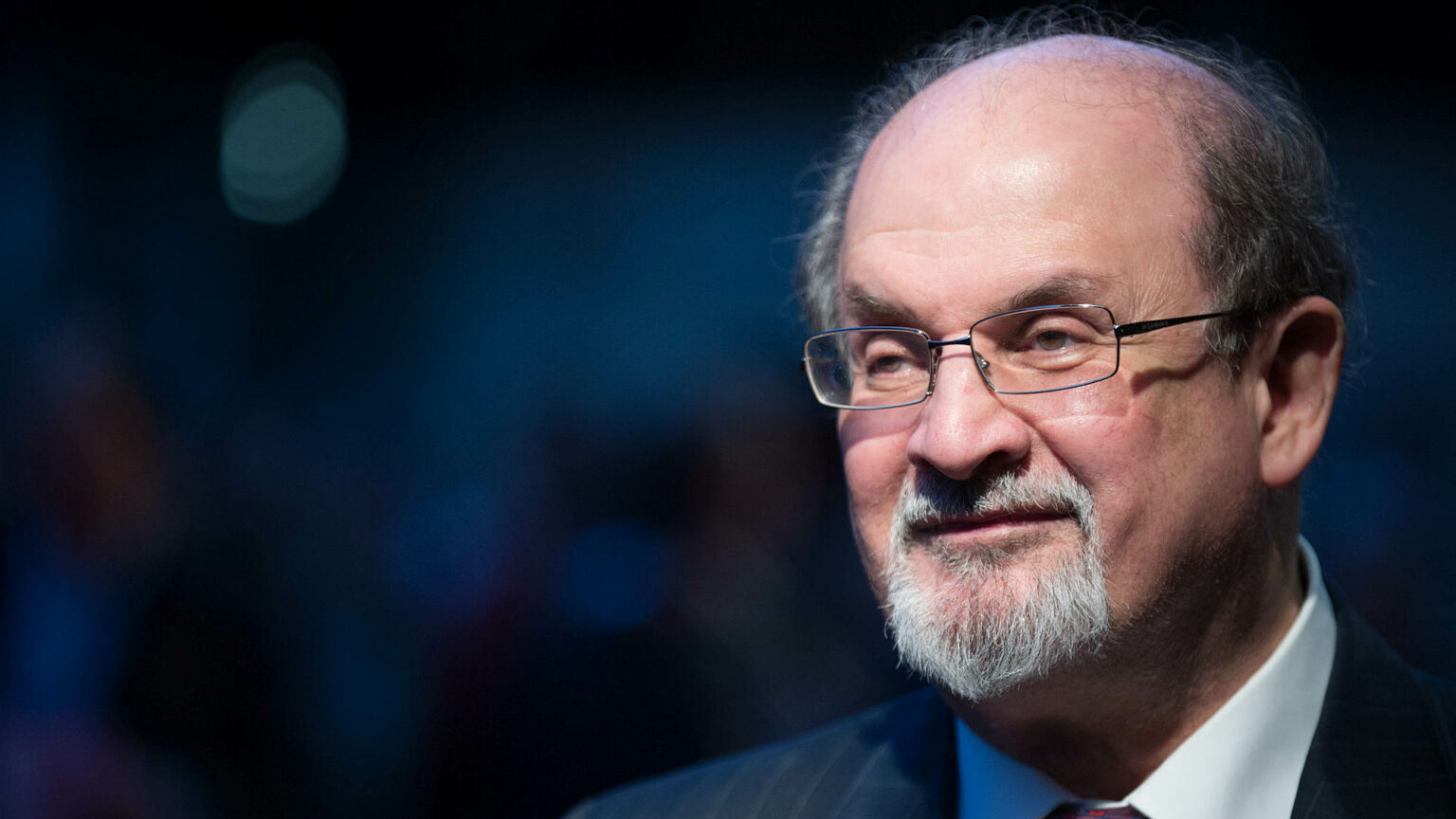We have betrayed Salman Rushdie once again
Just two months on from the Islamist attempt on his life, everyone seems to have forgotten about it.

Want unlimited, ad-free access? Become a spiked supporter.
Two months on from the brutal attempt on Salman Rushdie’s life, the full extent of his injuries is becoming clear. Andrew Wylie, Rushdie’s agent, has confirmed that they appear to be life-changing. Rushdie has lost sight in one eye and the use of one of his hands. Hadi Matar, the 24-year-old Islamist who is alleged to have stabbed Rushdie onstage as he prepared to give a lecture in New York, punctured the author’s eye and severed the nerves in one of his arms. Wylie says Rushdie has 15 more stab wounds in his chest and torso. It was a miracle that he survived at all.
That Rushdie might never be able to type again is particularly stomach-turning. For it was his writing that put a price on his head in the first place. His Booker Prize-shortlisted novel, The Satanic Verses, attracted the ire of Islamists the world over after it was published in 1988. Hardline clerics condemned it as blasphemous to Islam, often while boasting of never having read it. And this agitation eventually caught the attention of Iran’s Ayatollah Khomeini, who issued his fatwa in 1989 and effectively sentenced Rushdie to death.
Thirty-three years on, following many failed attempts to carry the sentence out, Matar has become the first to get this close. In an interview with the New York Post shortly after the attack in August, Matar talked of his ‘respect’ for Khomeini – hailing him as a ‘great person’, while stopping short of saying he was inspired to attack Rushdie by the fatwa, under the advice of his lawyer. But he wasn’t shy about condemning the man, three times his age, who he had just stabbed. ‘I don’t think he’s a very good person. I don’t like him… He’s someone who attacked Islam’, Matar told the Post. And then came the kicker: he had only ‘read a couple pages’ of the novel that he was prepared to kill Rushdie for writing.
As the full extent of Rushdie’s injuries and his alleged attacker’s motives become clearer, we should take no more nonsense about offensive words being a form violence – the all-purpose justification for censorship wielded by everyone from woke cancellers to Islamist killers. What happened to Salman Rushdie – that was violence. It was brutal, unprovoked, cowardly violence over a book apparently so offensive to Matar that he couldn’t even bring himself to read it. And to anyone who would try to caveat their condemnation of the attack with a condemnation of Rushdie’s ‘offensive’, ‘Islamophobic’ book, just be aware of what it is you are implying – that he brought this on himself. Which is also the position of the Iranian government, as it happens.
What’s more, the news of Rushdie’s condition is a grim reminder of how damp the response to the attack has been. Most people in politics and the media had essentially forgotten about Rushdie, it seems, until Wylie’s comments surfaced yesterday. They’d promptly moved on, as is now the go-to manoeuvre in response to acts of Islamist terror. The outpourings of horror and concern two months ago were pretty lukewarm, too. At least in 2015, in the wake of the Charlie Hebdo killings, there was an upsurge of solidarity and agitation – people proclaimed ‘Je suis Charlie’ and went on solidarity marches – before it inevitably petered out. But as spiked’s Mick Hume has pointed out, there was no ‘Je suis Salman’ movement following the attack in August.
The Western world is at risk of betraying Salman Rushdie for a second time, just as Western elites debased themselves after the fatwa was issued. The UK government may have offered Rushdie police protection back in 1989, but Margaret Thatcher and her ministers also made a point of extending their sympathy to the Islamists who were offended. Jimmy Carter went one better, declaring The Satanic Verses an ‘insult’ to Islam barely a month after the fatwa was issued. ‘There is no law in life or nature that says great religions may be insulted with impunity’, was the response of fellow author John le Carré.
The Rushdie affair made it crystal clear back in 1989 that the threat to free speech in the modern era stems more from our own cowardice than it does foreign theocrats. Today, now that Salman Rushdie has lost an eye and a hand to the fight for freedom of expression, the Western establishment is staring into space once again. He deserves so much better.
Tom Slater is editor of spiked. Follow him on Twitter: @Tom_Slater_
Picture by: Getty.
£1 a month for 3 months
You’ve hit your monthly free article limit.
Support spiked and get unlimited access.
Support spiked – £1 a month for 3 months
spiked is funded by readers like you. Only 0.1% of regular readers currently support us. If just 1% did, we could grow our team and step up the fight for free speech and democracy.
Become a spiked supporter and enjoy unlimited, ad-free access, bonus content and exclusive events – while helping to keep independent journalism alive.
———————————————————————————————————————————–
Exclusive January offer: join today for £1 a month for 3 months. Then £5 a month, cancel anytime.
———————————————————————————————————————————–
Monthly support makes the biggest difference. Thank you.










Comments
Want to join the conversation?
Only spiked supporters and patrons, who donate regularly to us, can comment on our articles.